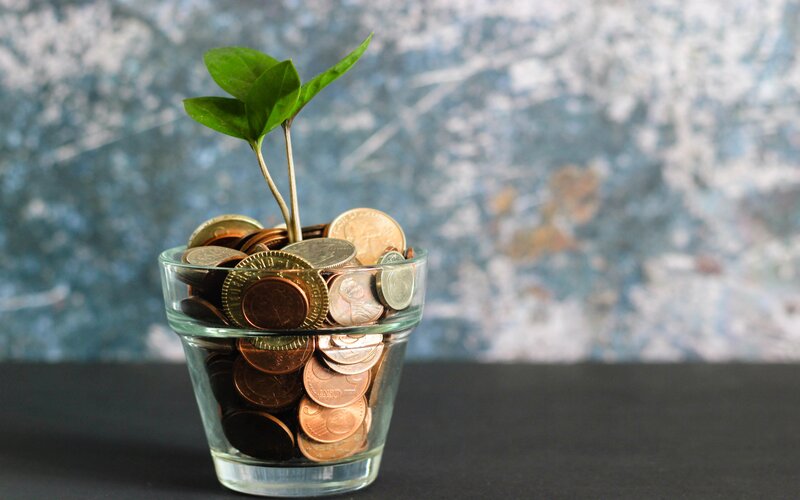Cost of living crisis be damned - a 2023 Travel Trends report from Luxury Escapes has found Aussies are more motivated to travel than ever before. The survey of more than 4,000 respondents found that nine in 10 Aussies plan to travel overseas this year, with half of Aussies planning on travelling to a country they haven’t been to before. It’s hardly a surprise really, when you consider international borders were closed for almost three years.
Having booked an eight-week trip through twenty or so European countries, I am well and truly one of those Aussies scratching my long overdue travel itch this year.
However, we all know travel ain't cheap. Our thirst for ‘revenge’ travel is driving up the cost of airfares by as much as 50% in some cases, according to analysis by travel search engine Kayak.
Set yourself an overall savings goal
Depending on your situation, you will likely need at least a few grand ready to spend on a good holiday. Whether you decide you need $3,000 or $30,000 - based on where you plan on going and who you will bring with you - set yourself a realistic savings goal that you know you can achieve in the timeframe. You may need to do a bit of research before deciding what your savings goal is such as where you want to go, how you want to get there, how long you’re going for, what you want to do, and so on (which we will touch on in a moment). To set the scene, give yourself a generous estimate (it’s always better to have too much than not enough) and work towards hitting your goal.
By setting this overarching goal, you may decide that while you’re saving your cents, you need to cut down on some non-essential expenses. You may want to read our article on 60 ways to save money with tips on budgeting, cutting down on everyday expenses, and much more.
Use a high interest savings account
Here’s one easy way to save that we’ll touch on quickly - open a high-interest savings account to deposit your holiday savings into. The good news about the cash rate going up means that interest rates on savings accounts are finally creeping up too. Depending on your age, you could access an interest rate of up to 5.30% p.a. from BOQ. At the time of writing, this is the highest savings account interest rate on our radar.
Having a high-interest savings account is a low-effort, low-risk way to make your money work for you. While there may be certain conditions you need to meet - like depositing or spending a certain amount - it’s a simple method of earning some extra pocket money that can go towards your trip.
The most competitive savings account interest rates are currently for Aussies under 30 years old. But if you’re over 30, there are still some good options for you to look into.
The table below features savings accounts with some of the highest interest rates on the market.

- A high-interest online savings account with no monthly fees, easy withdrawals and award-winning digital banking
- No withdrawal notice periods or interest rate penalties
- Save up to 10% on eGift cards at over 50 retailers with Macquarie Marketplace
Compare flights
Now we’re getting down to the fun part: booking stuff! The holiday truly becomes real once you start locking in your travel plans. If you’re looking to get the most bang for your buck, consider shopping around for flights. Sites like Skyscanner and Webjet are good starting points to get an idea of what prices are out there for the dates you plan on travelling. Personally, I like to compare flight prices on an aggregator like Skyscanner to get an overall view of how much flights will cost for my dates, and then book directly with the airline. Booking flights through an aggregator like Skyscanner can be a bit more risky if you need to change or cancel your flights.
You may also need to be flexible with your dates if you want to nab the best deal. For example, when using Skyscanner you can look at flights over a whole month and pick the cheapest flights on certain days. While the cheaper flights may have long layovers or departure times at the crack of dawn, jumping on these flights are easy ways to save money on your holiday. Unless there’s a reason you need to be somewhere on a certain date, you may want to consider being flexible with your dates and travelling during off-peak and shoulder season.
On a recent episode of the Penny for Your Thoughts podcast, Tristan Dakin, executive director of international money transfer provider Wise, said the key to scoring the cheapest flight is to book well in advance.
“A lot of those sites (Skyscanner, Webjet) use dynamic pricing. They'll figure out what the interest in different flights is and how many seats are left, how close it is to the flight leaving, and how many people are looking at them at any one time. It’ll change prices accordingly to fit in with the demand of the market,” he said.
“You can relieve a lot of pressure on those flat prices just by booking well in advance. I know it sounds like a pretty obvious or basic one, but it can really make a difference in terms of the ticket costs.”
Another thing that may be helpful as the travel industry kicks back into gear is looking out for deals - not just for flights but for everything travel related. Keep an eye out for deals and book in quickly when they come up - usually, these sales only last for a few days if not 24 hours.
Beware of hidden fees when booking online
When you’re booking your flights, accommodation, or any other activities online, Mr Dakin said it’s important to be really mindful of extra fees, such as currency conversion fees or foreign transaction fees.
“Certain websites charge a whole bunch of different fees for the service and handling, booking fees, different transaction fees, and exchange rates. The main one we focus on a lot as a business is exchange rates. When you’re booking through a foreign airline, even if you’re being quoted in Australian dollars, that ticket is actually going to get booked using the local currency of wherever that airline is based,” he said.
“So what actually happens is, if you go and use your bank card, the airline or booking platform is charging an exchange on that. Plus, if you’re using an Australian bank card, they’re going to be charging you an exchange rate, a foreign transaction fee, a booking fee, and all these sorts of things that are intentionally obfuscated so that the customer doesn’t really know. But it ends up meaning you pay a lot more.”
Shop around for accommodation
Another way to save money for your holiday is to shop around for accommodation. We’re no longer just limited to hotel bookings with the rise of platforms like Airbnb. Scout the internet to find the best accommodation for you across an array of websites - from hotel booking platforms to people renting out their homes on Airbnb.
Again, look out for deals. Many online platforms may have deals for your desired location. You could consider signing up to their emailing list (if you’re able to deal with the inevitable spam that will come with it) to keep an eye on deals as they arise.
You should also note that travelling on the weekend may result in more expensive airfares and accommodation prices. Consider travelling during the week (or at least leaving and coming back on a weekday) to secure the best price.
Plan, plan, plan
You will either find this part really fun or really boring. Plan out your trip - even the small details. Look into where you want to go and figure out what you want to do while you’re there. This way, you can get a better idea of how much you need to save and can try to find deals beforehand to potentially save some buckaroos.
Let’s say you plan on taking a trip to the Whitsunday Islands in Queensland. Do you want to take a day trip through the islands? Do you want to scuba dive or jetski? Will you be taking the ferry to the mainland? Where will you be staying? Will you fly or drive? Figure out all the logistical stuff beforehand to not only help with the budgeting side of things but to book things in advance. In doing so, you will know all your options for quality and pricing, and you won’t end up stuck booking something expensive at the last minute.
Set yourself a daily spending limit
While you’re on holiday, it’s easy to loosen your purse strings and go wild. But you may look back later and realise you were spending way too much on ugly tourist shirts you’ll never wear again - I mean, who needs four shirts that say Holiday calories don’t count? The answer is no one.
Set yourself a daily spending limit for money to be spent recreationally. Being on holiday is meant to be fun, not spent stressing about money. Don’t just budget for the big things like accommodation and flights - account for the everyday stuff like food and drinks and perhaps one ugly tourist shirt. That way, you won’t look back and realise you wasted money on weird stuff but you were still able to have a few cocktails by the ocean.
Look into getting a travel credit card
You might like to consider getting a travel credit card if you are going on a holiday overseas. Using your regular debit or credit card will likely come with currency conversion fees and international transaction fees. To simplify this, a travel credit card can come in handy. They also come with a few perks, such as:
- Being accepted globally, so you can use it whenever you travel abroad
- Collecting rewards programs or frequent flyer points when used
- Access to special perks like airport lounges, complimentary travel insurance, and more
If a travel credit card isn’t for you, you could even look into a travel money card. Though it won’t come with the same perks as a credit card, you can only spend the money you put on there which may be helpful if you’re known to overspend.
Travel with a combination of cash and card options
It’s always a good idea to travel with a combination of payment methods, rather than relying on just one payment method. It depends on where you’re travelling to, but cash isn’t king these days in many countries (although it’s still wise to carry some).
Mr Dakin said travellers should look for a multi-currency account with a card attached, and avoid using their bank card overseas.
“After working in the industry for 15 years, I would say never ever use your bank card overseas, like that is the absolute worst thing you can do. There are many more options to do it better. I would look for a multi-currency card that actually specifically addresses in a transparent way the different fees that you’re charged and are designed to reduce those fees.
“The thing about banks is, they’re there for credit and lending. So things like international travel and foreign exchange, they’re ancillary services - the banks don’t really care about them. So they don’t put a whole lot of time into optimising that user experience, they have a lot of opaque pricing and people aren’t aware of it which makes them (banks) a lot of money, so they aren’t incentivised to change it.
“But there are options out there that are specifically designed to cut out fees, are easy to use, have an awesome user interface, and are really easy to set up. Look for a multi-currency account that has a card attached, preferably one that doesn't charge you any international fees, doesn't charge you an exchange rate markup, and allows you to withdraw money from an ATM for free so you can get local currency when you're in the country and not be charged a whole bunch of different fees for withdrawing. There are options out there (hint hint!)”.
Monitor the exchange rate
Before you buy a ticket, make an online purchase, or convert Australian dollars into the currency you’re going to need, Mr Dakin said it’s important to think about the exchange rate and compare your options.
“Look at the exchange rate they’re offering you and what you’re actually going to get at the other end, and what it’s costing you in Aussie dollars, and compare it - Google it and look at what the exchange rate should be. I guarantee there would be a pretty substantial markup,” he said.
He also said travellers should avoid exchanging money at the airport at all costs.
“There couldn’t be a worse or more expensive place in the world to get some foreign currency. I would avoid that at all costs. Rather, use a card that allows you to withdraw local currency at an ATM in the country you’re travelling to.”
Switch off international roaming
Mobile roaming charges can add up rapidly. Instead, it’s almost always better to either get a local SIM card or a prepaid travel SIM card (eg. SimCorner, etc) before you go.
“If you can get a local SIM card when you arrive that's usually cheaper than roaming. That's certainly what I always tried to do and there are a few other little advantages to that as well,” Mr Dakin said.
“If you put a local SIM card in your phone, it's kind of helpful for bookings and if you order an Uber and they want to call you back, like little things like that when you're when you're travelling can be really helpful. So generally it's a bit cheaper.”
If you’re in the market for a travel sim card (hands up, me!) Sydney Airport has just launched TripSim, an eSIM card with competitively priced overseas data plans. Because it’s an eSIM there’s no need to physically swap out your current SIM card or change phone numbers, and it can be set up online before you go (you don’t need to visit Sydney Airport).
Other tips for when you’re away
While a lot of holiday savings come from careful planning before your trip, you should still be on your guard while you’re on the holiday.
Be careful where you book
Don’t immediately book through a kiosk or tourist hub for tickets to things like events or tours. First, check online to see whether the same thing is available cheaper. You may find that you save yourself some money as typically kiosks will take a cut of your booking fee.
Protect your cash
Keep your cash and important documents close to your chest, and I mean that literally. Consider getting a bum bag or a satchel to go under your clothes, so if you end up getting robbed, you at least still have all your cash and your passport (trust me - it’s not a fun item to lose abroad). While this might sound dramatic, pick pocketing is actually very common in places like Europe. So, it’s always a good idea to be cautious.
Keep an eye on your bags
Along the same lines as the prior tip, keep an eye on all your stuff. Make sure your bags are zipped up, you have a close eye on your belongings at all times and no one is standing too close to you. You usually won’t realise you’re being robbed until it’s too late.
Look out for tourist traps
You may think you’re getting a good deal on something, but if you’re clearly a tourist, you might find that people aren’t being generous out of the kindness of their hearts. Be sure that when you’re thinking about buying something, you’re doing it with your head and not your heart. Don’t let the people selling their bracelets around the Eiffel Tour fool you into thinking you’re getting a good deal; you’re probably not.
Image by Emma Duffy
.jpg)








 Rachel Horan
Rachel Horan
 Emma Duffy
Emma Duffy
 Hanan Dervisevic
Hanan Dervisevic